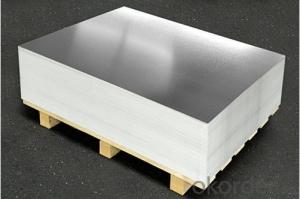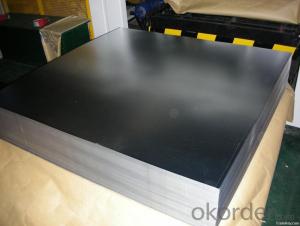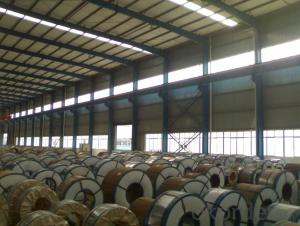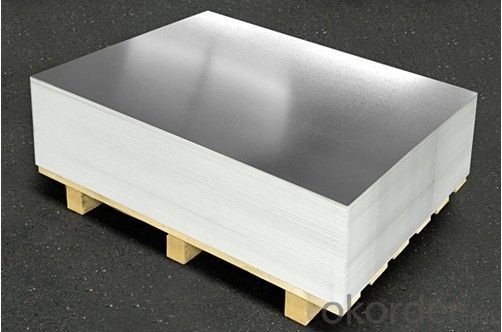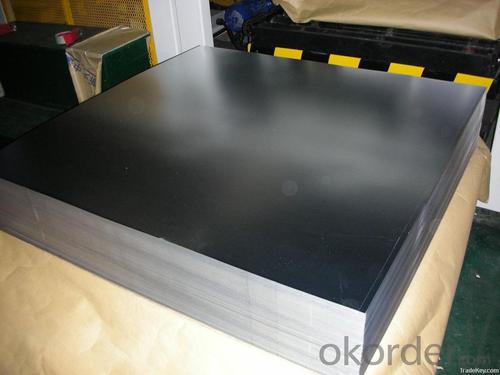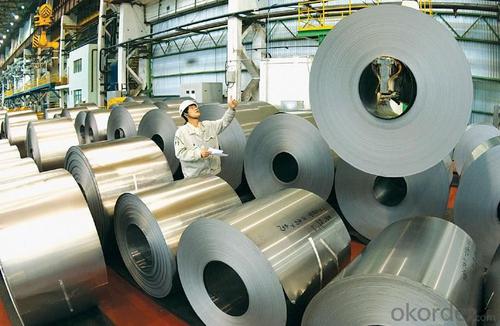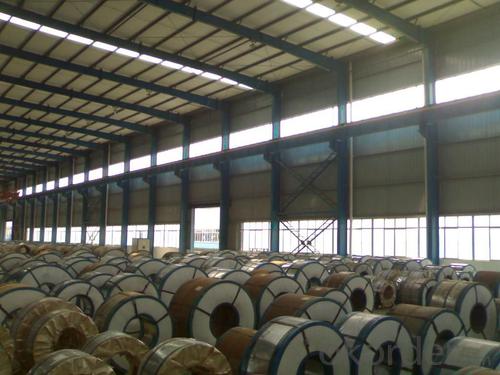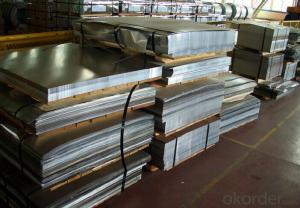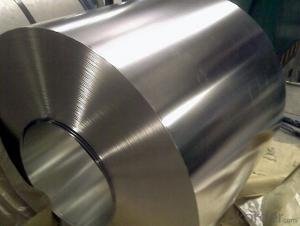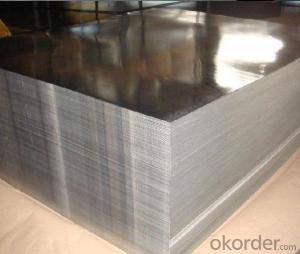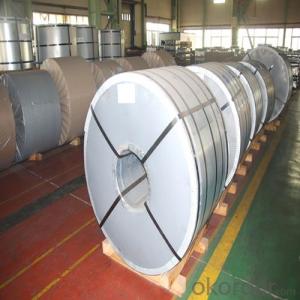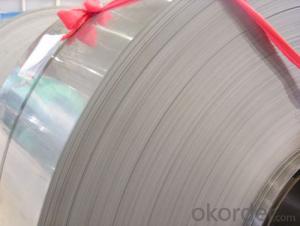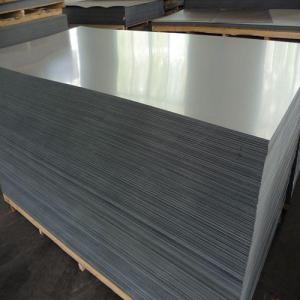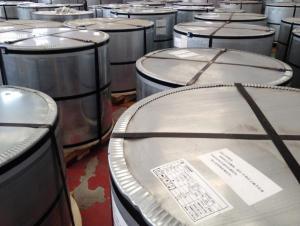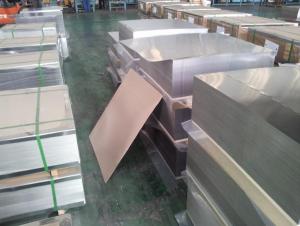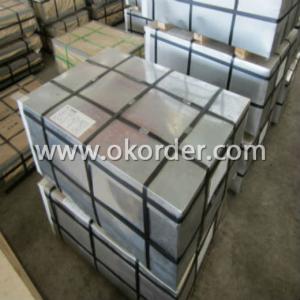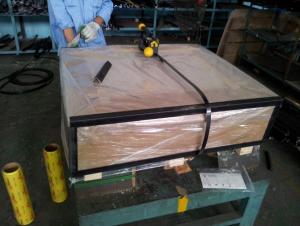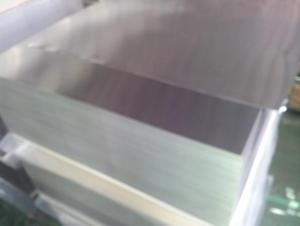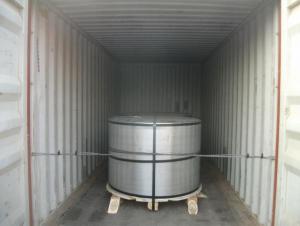Electrolytic Tinplate Coil and Sheets for Tin Packaging
- Loading Port:
- Tianjin
- Payment Terms:
- TT OR LC
- Min Order Qty:
- 25 m.t
- Supply Capability:
- 7000 m.t/month
OKorder Service Pledge
OKorder Financial Service
You Might Also Like
1.Structure of Electrolytic Tinplate Coil and Sheets for Tin Packaging Description
Electrolytic Tin Plate Coils and Sheets for Foods Metal Packaging, is one thin steel sheet with a coating of tin applied by electrolytic deposition. Tinplate made by this process is essentially a sandwich in which the central core is strip steel. This core is cleaned in a pickling solution and then fed through tanks containing electrolyte, where tin is deposited on both sides. As the strip passes between high-frequency electric induction coils, it is heated so that the tin coating melts and flows to form a lustrous coat.
2.Main Features of the Electrolytic Tinplate Coil and Sheets for Tin Packaging
Appearance – Electrolytic Tin Plate is characterized by its beautiful metallic luster. Products with various kinds of surface roughness are produced by selecting the surface finish of the substrate steel sheet.
Paintability and printability – Electrolytic Tin Plates have excellent paintability and printability. Printing is beautifully finished using various lacquers and inks.
Formability and strength – Electrolytic Tin Plates have got very good formability and strength. By selecting a proper temper grade, appropriate formability is obtained for different applications as well as the required strength after forming.
Corrosion resistance – Tinplate has got good corrosion resistance. By selecting a proper coating weight, appropriate corrosion resistance is obtained against container contents. Coated items should meet 24 hour 5 % salt spray requirement.
Solderability and weldability – Electrolytic Tin Plates can be joined both by soldering or welding. These properties of tinplate are used for making various types of cans.
Hygienic – Tin coating provides good and non toxic barrier properties to protect food products from impurities, bacteria, moisture, light and odours.
Safe – Tinplate being low weight and high strength makes food cans easy to ship and transport.
Eco friendly – Tinplate offers 100 % recyclability.
Tin is not good for low temperature applications since it changes structure and loses adhesion when exposed to temperatures below – 40 deg C.
3.Electrolytic Tinplate Coil and Sheets for Tin Packaging Images
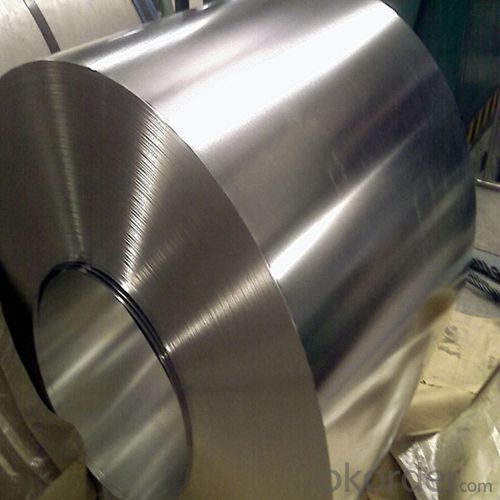
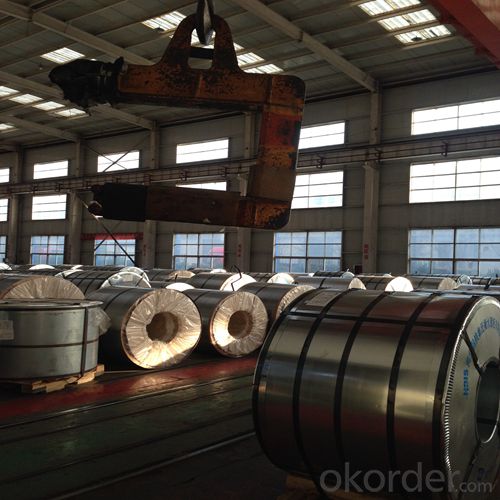
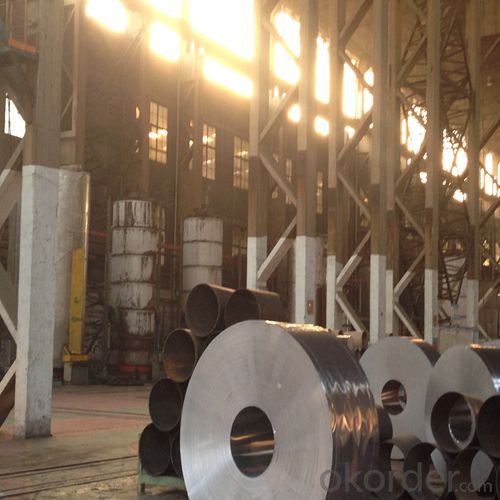
4.Electrolytic Tinplate Coil and Sheets for Tin Packaging Specification
Standard | ISO 11949 -1995, GB/T2520-2000,JIS G3303,ASTM A623, BS EN 10202
|
Material | MR,SPCC |
Thickness | 0.15mm - 0.50mm |
Width | 600mm -1150mm |
Temper | T1-T5 |
Annealing | BA & CA |
Coil Inner Diameter | 508mm |
Weight | 6-10 tons/coil 1~1.7 tons/sheets bundle |
Passivation | 311 |
Oil | DOS |
Surface | Finish,bright,stone,matte,silver |
5.FAQ of Electrolytic Tinplate Coil and Sheets for Tin Packaging
- How are the Electrolytic Tin Plates specified?
The Electrolytic Tin Plates are specified as per the steel base, extent of tempering, the coating weight, annealing method and the surface finish.
- How many types there are for base steels?
The base steels are of three types: Type MR, L, D
- Q: How does tinplate perform in terms of resistance to chemical agents?
- Tinplate generally exhibits good resistance to chemical agents due to the protective layer of tin coating. This coating acts as a barrier, preventing direct contact between the metal and the chemicals, thereby minimizing the risk of corrosion or chemical reactions. However, the specific performance can vary depending on the type and concentration of the chemical, as well as the duration of exposure.
- Q: What are the common thicknesses of tinplate used for different applications?
- The common thicknesses of tinplate used for different applications range from 0.13mm to 0.49mm.
- Q: What are the different types of tinplate lamination?
- There are primarily two types of tinplate lamination: single-sided lamination and double-sided lamination. In single-sided lamination, only one side of the tinplate is laminated with a protective layer, typically made of a polymer or lacquer. On the other hand, double-sided lamination involves laminating both sides of the tinplate, providing enhanced protection and barrier properties.
- Q: Advantages and disadvantages of tinplate packaging
- Characteristics and advantages of the 1. materials can tinplate opaque sealed 3. tin 2. good reduction of 4. provides a source of effective iron 5. Recyclable, reuse. In compliance with international environmental requirements, in line with the future trend of the 6. products is strong, good protection, no deformation, shock resistance, fire resistance, resistance to high temperature and high pressure
- Q: What are the advantages of using tinplate for automotive components?
- One advantage of using tinplate for automotive components is its high corrosion resistance. Tinplate is coated with a thin layer of tin, which acts as a protective barrier against moisture and oxidation, ensuring the longevity of the components. Additionally, tinplate offers excellent formability, allowing for complex shapes and designs, which is crucial in the automotive industry. Lastly, tinplate is lightweight yet strong, contributing to improved fuel efficiency and overall vehicle performance.
- Q: What are the different ways to seal tinplate cans?
- There are several different ways to seal tinplate cans. Some common methods include double seam sealing, soldering, welding, and adhesive bonding. Each method has its own advantages and suitability based on factors like the type of product being stored, the desired level of sealing integrity, and the production process.
- Q: What are the factors that affect the cost of tinplate?
- The factors that affect the cost of tinplate include the price of raw materials, such as tin and steel, fluctuations in demand and supply, manufacturing and processing costs, transportation and logistics expenses, currency exchange rates, trade policies and tariffs, and market competition.
- Q: Can tinplate be used for packaging of non-food products?
- Yes, tinplate can be used for packaging of non-food products. Tinplate is a versatile material that offers excellent protection against moisture, light, and oxygen, making it suitable for various non-food items such as cosmetics, chemicals, and pharmaceuticals. Its durability and recyclability further make it a popular choice for packaging non-food products.
- Q: How does tinplate affect the overall product tamper-evident features?
- Tinplate enhances the tamper-evident features of a product by providing a secure and durable packaging material. The robustness and strength of tinplate make it difficult for unauthorized access or tampering, ensuring the integrity of the product. Additionally, tinplate can be sealed tightly, making it evident if the package has been opened or tampered with.
- Q: How does tinplate perform in terms of aroma and flavor preservation?
- Tinplate is highly effective in preserving aroma and flavor due to its excellent barrier properties. It forms a protective layer that prevents oxygen, light, and moisture from entering the packaging, thereby preserving the quality and freshness of the product inside.
Send your message to us
Electrolytic Tinplate Coil and Sheets for Tin Packaging
- Loading Port:
- Tianjin
- Payment Terms:
- TT OR LC
- Min Order Qty:
- 25 m.t
- Supply Capability:
- 7000 m.t/month
OKorder Service Pledge
OKorder Financial Service
Similar products
Hot products
Hot Searches
Related keywords
